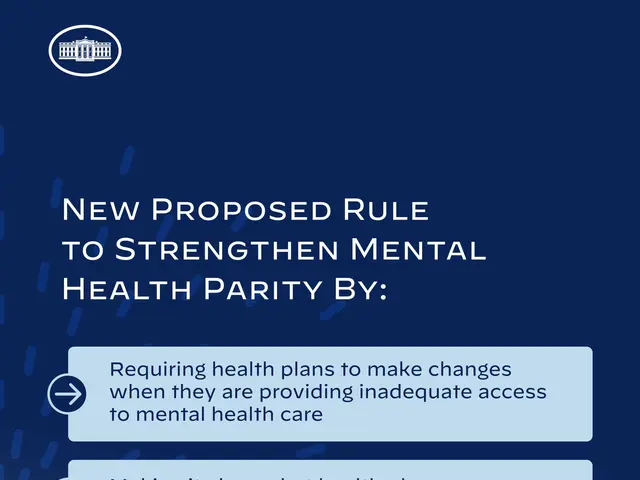Strategies based on scientific evidence to conquer feelings of being overwhelmed
Feeling overwhelmed can be a common experience for many people, but there are several strategies that can help manage these feelings. This article explores various evidence-based techniques, focusing on both the cognitive/emotional and practical/behavioral aspects of overwhelm.
Mindfulness-Based Stress Reduction (MBSR)
One effective approach is Mindfulness-Based Stress Reduction (MBSR). This practice involves meditation, mindful movement (such as yoga), and body scanning to help individuals stay present and nonjudgmental. By improving emotional regulation, reducing reactivity to stress, and increasing self-awareness, MBSR helps individuals change how they relate to overwhelming thoughts or feelings rather than trying to eliminate them [2][5].
Cognitive Behavioral Therapy (CBT)
Cognitive Behavioral Therapy (CBT) is another structured therapy that targets and changes negative thought patterns and behaviors contributing to overwhelm. By challenging irrational thoughts and developing realistic responses, CBT helps reduce anxiety linked to overwhelm [4].
Exposure Therapy
Exposure Therapy involves gradually confronting feared or stressful situations in a controlled way. This helps reduce avoidance behaviors that reinforce anxiety and overwhelm, building confidence and desensitizing the person to triggers [2][4].
Acceptance and Commitment Therapy (ACT)
Acceptance and Commitment Therapy (ACT) emphasizes accepting feelings of overwhelm without resistance while committing to actions aligned with personal values. This psychological flexibility helps manage distress without trying to immediately change feelings [2].
Empowerment and Control Strategies
Feeling overwhelmed often stems from a perceived lack of control, particularly with workload or inflexible schedules. Approaches that empower individuals—such as collaborative planning, providing options rather than directives, and avoiding micromanagement—help restore a sense of control and reduce burnout-related overwhelm [1].
Workload Management Techniques
Practical skills like breaking down large tasks into smaller steps, prioritizing to-do lists, focusing on one task at a time, and delegating or asking for help can prevent feelings of being overloaded and enhance effectiveness [3].
Behavioral Relaxation Techniques
Deep breathing, progressive muscle relaxation, and guided imagery are behavioral methods that reduce immediate physiological stress symptoms associated with feeling overwhelmed [4].
Building a Daily Routine
Small, controlled movements, such as organizing your desk, going for a brisk walk, or trying a new recipe, can help create a more calm and manageable daily life. Building a good daily routine can increase mental and emotional stability, make days more predictable, and provide a quick sense of accomplishment [6].
Tai chi and yoga, for example, help individuals become more aware of their breath and body's movements, while also supporting stress relief, improving mood, strengthening muscles, and improving balance [4]. Following a routine can also give a sense of control when life feels chaotic, support a healthy sleep cycle, and help manage stress [6].
While these techniques are evidence-based, effectiveness can vary individually, and professional guidance from therapists or coaches often enhances outcomes [1][2][4]. It's essential to remember that starting with just a few practices and gradually adding more as you become more comfortable is a great way to begin managing feelings of overwhelm. A daily routine doesn't have to be boring or strict—think of it as a way to create more calm and make life a little easier to handle each day.
- Mindfulness-Based Stress Reduction (MBSR) uses meditation, mindful movement, and body scanning to help individuals stay present, reducing reactivity to stress and increasing self-awareness, thereby changing their relationship with overwhelming thoughts or feelings.
- Cognitive Behavioral Therapy (CBT) targets and changes negative thought patterns, reducing anxiety linked to overwhelm, and Acceptance and Commitment Therapy (ACT) helps manage distress by accepting feelings of overwhelm without resistance while committing to actions aligned with personal values.
- Behavioral relaxation techniques like deep breathing, progressive muscle relaxation, and guided imagery, along with building a daily routine, can reduce immediate physiological stress symptoms associated with feeling overwhelmed and increase mental and emotional stability.




